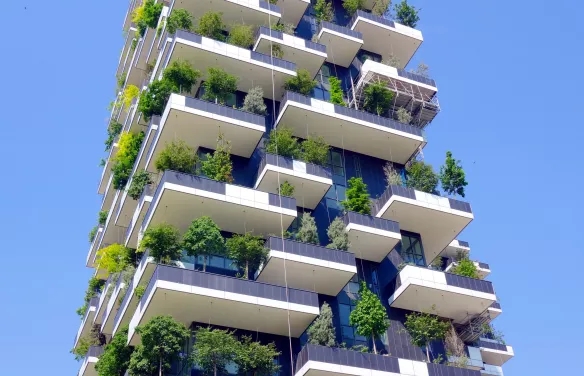There’s a tendency in architecture to focus on design and aesthetics but designing with architectural glass requires a much deeper understanding of the material and its properties. We aim to head off potential problems by meeting with architects in the early stages of their projects so we can assess the feasibility of the glass products they are thinking of using.
Short biography
Saul Papaleo is International Building Project Manager and Glass Application Engineering Office Manager at AGC, having joined the group in 2003 as a sales manager in Italy. In 2009 he moved to the IBP Team Italy to promote specialty products for facades and to manage project acquisition. Since 2014 he has been leading the International Team that provides glass expertise and technical support for international stakeholders involved in large construction projects.
When designing a project, architects like to choose their glass based on shape, size, colour and so on. There’s a tendency in architecture to focus on design and aesthetics but designing with architectural glass requires a much deeper understanding of the material and its properties. We aim to head off potential problems by meeting with architects in the early stages of their projects so we can assess the feasibility of the glass products they are thinking of using. We help them choose the best products for their design but mostly we support them by deploying our expertise to spot potential risks and mitigating those risks in way that complies with the relevant building regulations.
We call this the Technical Advisory Service (TAS). Our TAS team has specialist engineers in all markets who are familiar with all local building regulations. They are mainly active in two key areas: Advanced Engineering Service (providing calculations and professional reports for customers) and Digitalisation & Product Stewardship (providing tools, developments, certifications and technical documents about our product portfolio).

Glass is used in many different applications, ranging from an infill element in windows to cold bent glass in high-rise buildings. Accordingly, our services range from standard technical advice to advanced engineering support. For simple calculations we’ve developed a Glass Configurator tool that architects and engineers can use to optimise their glass compositions for thermal and acoustic performance. The tool is even able to provide a structural calculation report for flat glass.
For complex technical analyses requiring advanced calculations we provide specialist support via our Advanced Engineering Service. This department, headed up by Pierre Lomba, offers clients our experts’ personalised support, including structural analysis calculations, thermal modelling, light and energy simulations, explosion on demand and more. We can determine whether a given glass composition is suitable in terms of its stiffness, strength and stability, and we also check whether it will be durable in its installed state.
We’re seeing more and more requests about explosion-resistant glass and facades. This is related to the need for increased protection since exploding glass can cause serious injuries. The typical static models carried out by structural engineers are inaccurate, so it’s necessary for us to carry out dynamic calculations that factor in the possibility of cracks in the glass.

The TAS team, managed by Michaël Elstner, helps clients identify the most suitable and sustainable products for their projects. They also provide the relevant technical documents to support the choices made and are involved in the development of tools to make it easier for clients to choose the right glass for their projects.


